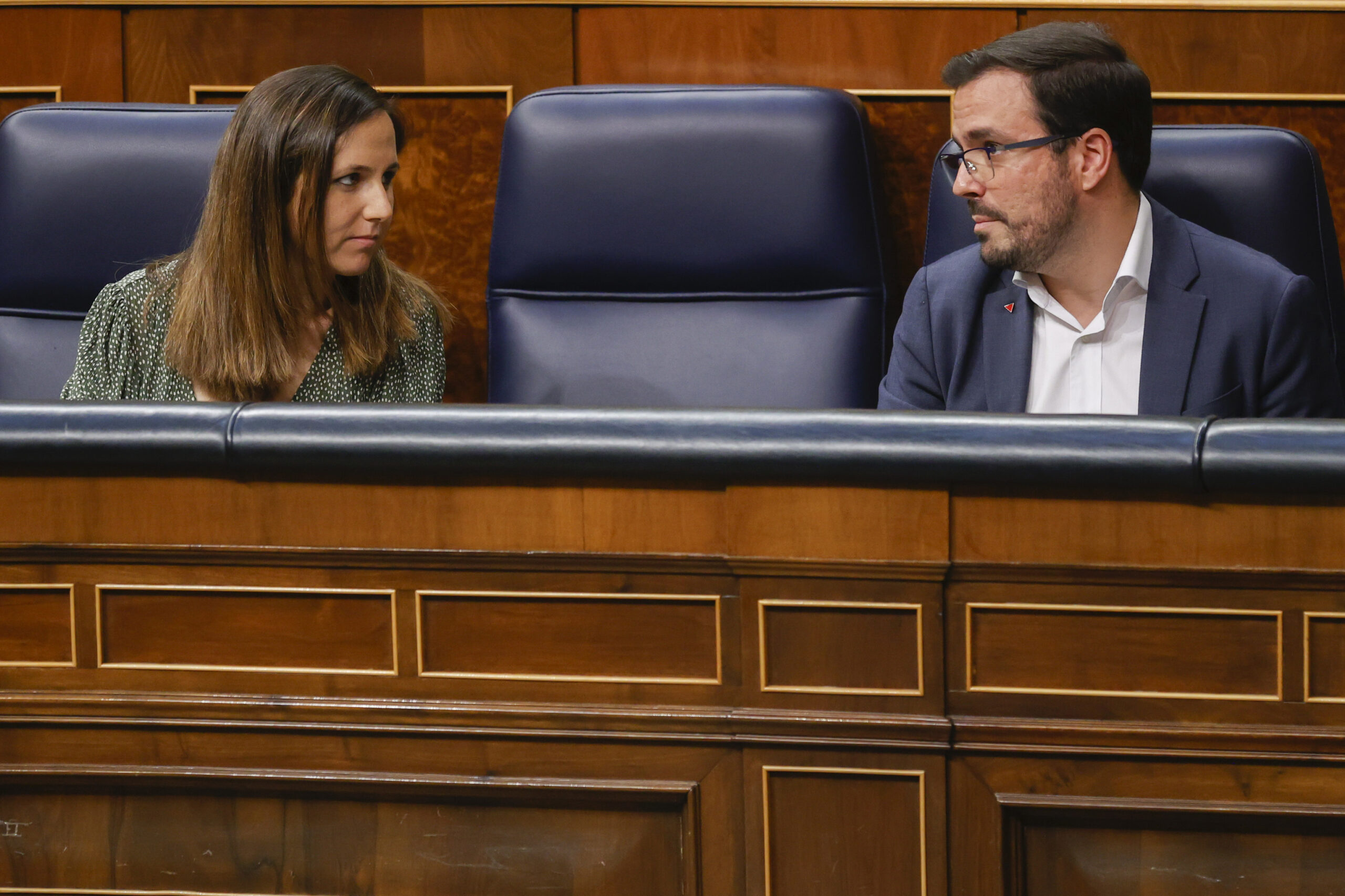Yolanda Díaz will count on United We Can for her plans, but not for now. The vice president, who officially launches her Sumar platform this Friday, asked her colleagues from the purple branch of the Council of Ministers not to attend the presentation ceremony that will be held at the Matadero cultural venue in Madrid.
This was confirmed this Wednesday by the Minister of Social Rights and leader of Podemos, Ione Belarra, who has assured that no representative of United We Can be present at the event at the request of the second vice president, but has specified that it is a “concrete” case and that from space the decision is respected, since it is she who must “mark the times” from now on.
Díaz will take the first step this Friday to transcend United We Can. The also Minister of Labor will kick off a six-month process of listening and approaching citizens and social agents before designing the political configuration of her new space and waiting to learn about possible alliances with other leaders to the left of the PSOE. The role of Podemos in Díaz’s schemes remains unknown at this point, which generates concern in the ranks of the formation.
For this reason, from the purple party its importance is highlighted: “We are the largest party in space. We have to work for unity”, the general secretary of the formation has launched in an interview with TVE. Weeks ago, Belarra herself made it clear that Podemos must have an “essential” role in the next electoral campaign, since she is responsible for the social transformations achieved in the coalition Executive with the PSOE.
In any case, Díaz arrives at the birth of Sumar with serious problems that have arisen in recent weeks. The blow to the left in Andalusia – a project that she supported – generates fear of less mobilization than expected at the national level. In addition, the political fall of Mónica Oltra affects the territorial configuration of Sumar, since the former Valencian vice president was, together with Ada Colau and Mónica García, the figures on whom the Minister of Labor had relied in recent months to promote your future brand.
Leaders of other political formations will not participate in the Sumar launching ceremony either. The news, advanced by El Periódico de España, has been confirmed this Wednesday by Belarra admitting that it has been the vice president herself who has requested the political parties to stay out of the platform for the time being.
This is, to date, one of the few known keys to the future project of the Minister of Labor: political groups and acronyms will play a secondary role and the main weight will fall on the citizenry, as Díaz has explained on several occasions. The idea is to achieve a wider and more transversal platform than United We Can, and closer to the street than the purple coalition is today.
Díaz will present Sumar this Friday at a time when he has come remarkably close to the purple ranks after months of distance and different points of view on the Government’s roadmap. This week, precisely, the vice president and the ministers of United We Can have closed ranks against Pedro Sánchez and the Executive’s commitment to NATO to increase spending on defense.
The Minister of Labor, in fact, has become the visible head of the discrepancy against the Minister of Defense, Margarita Robles, and has convened as an “urgency” the monitoring table of the Government pact to review the commitments of the coalition and show their rejection of the increase approved in the Council of Ministers this Tuesday, which the purples say they were not aware of. An extreme that La Moncloa denies.
Despite the harmony, and as Belarra has pointed out, it is Díaz who has the baton in relation to the organization of Sumar and in Podemos they are aware that they do not have the power to manage the deadlines or the decisions of the coming months. The proof of this is that the vice president took more than a month and a half to communicate to the space she leads that she had registered the brand that will officially see the light of day this Friday.
Conforms to The Trust Project criteria
















